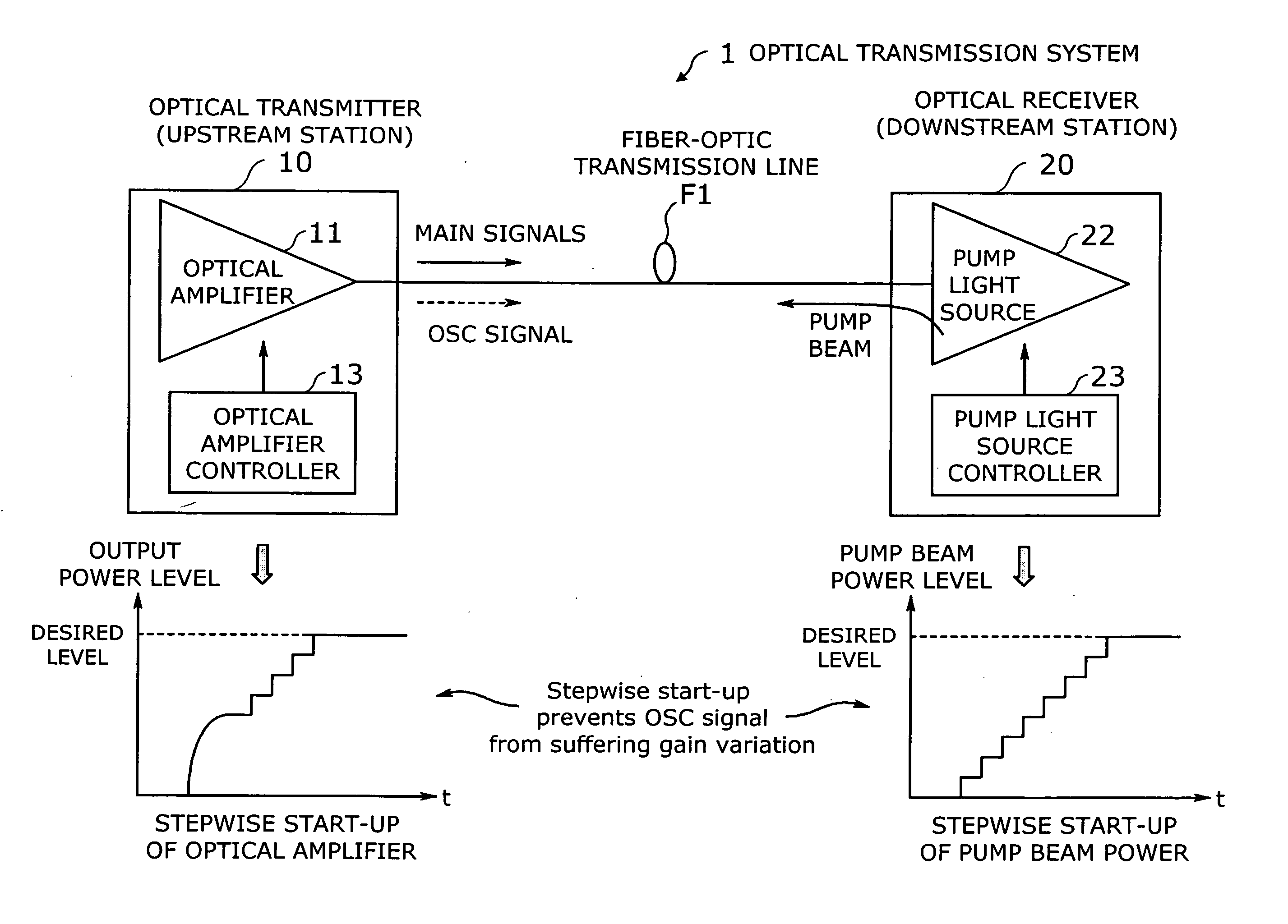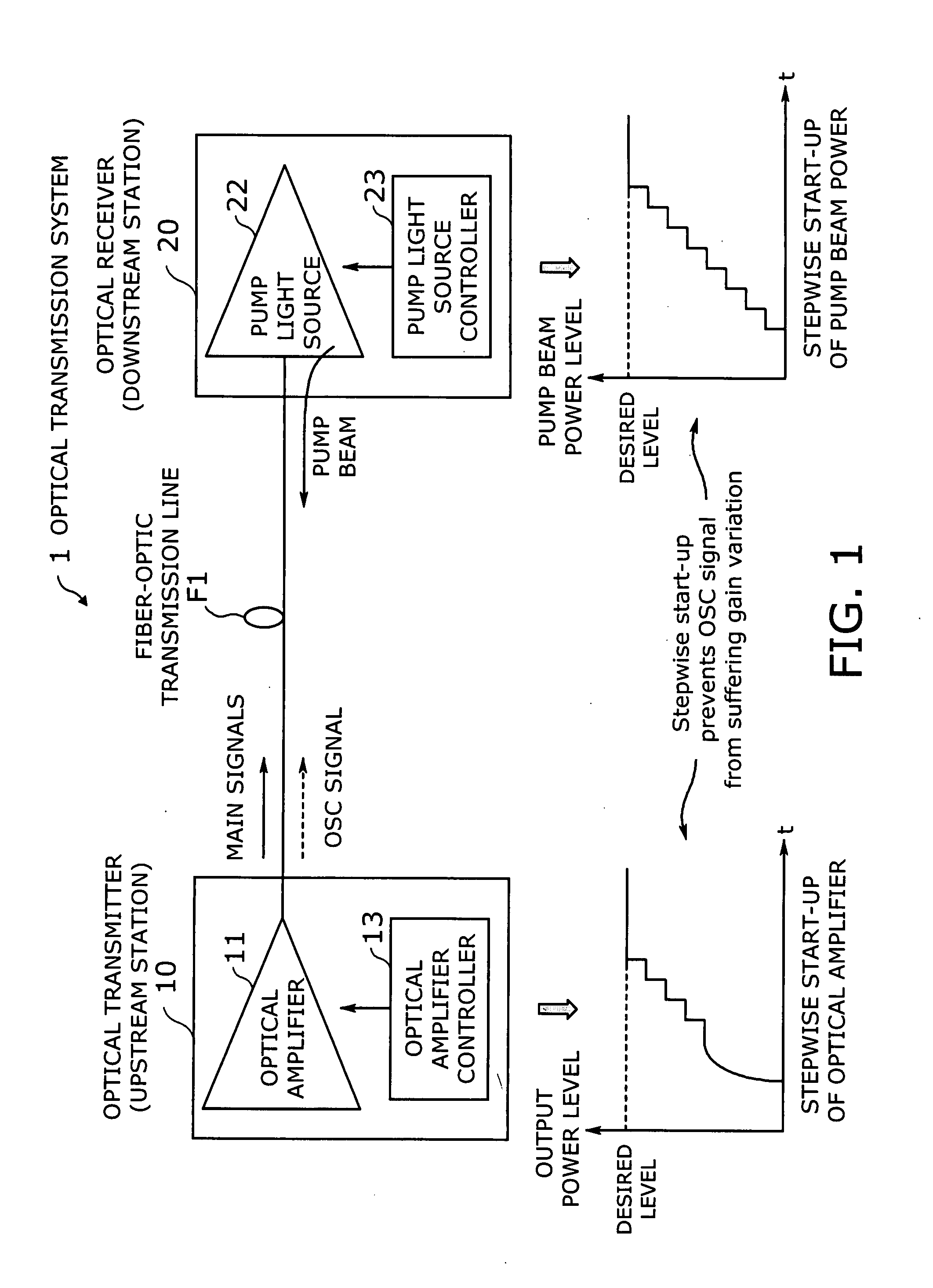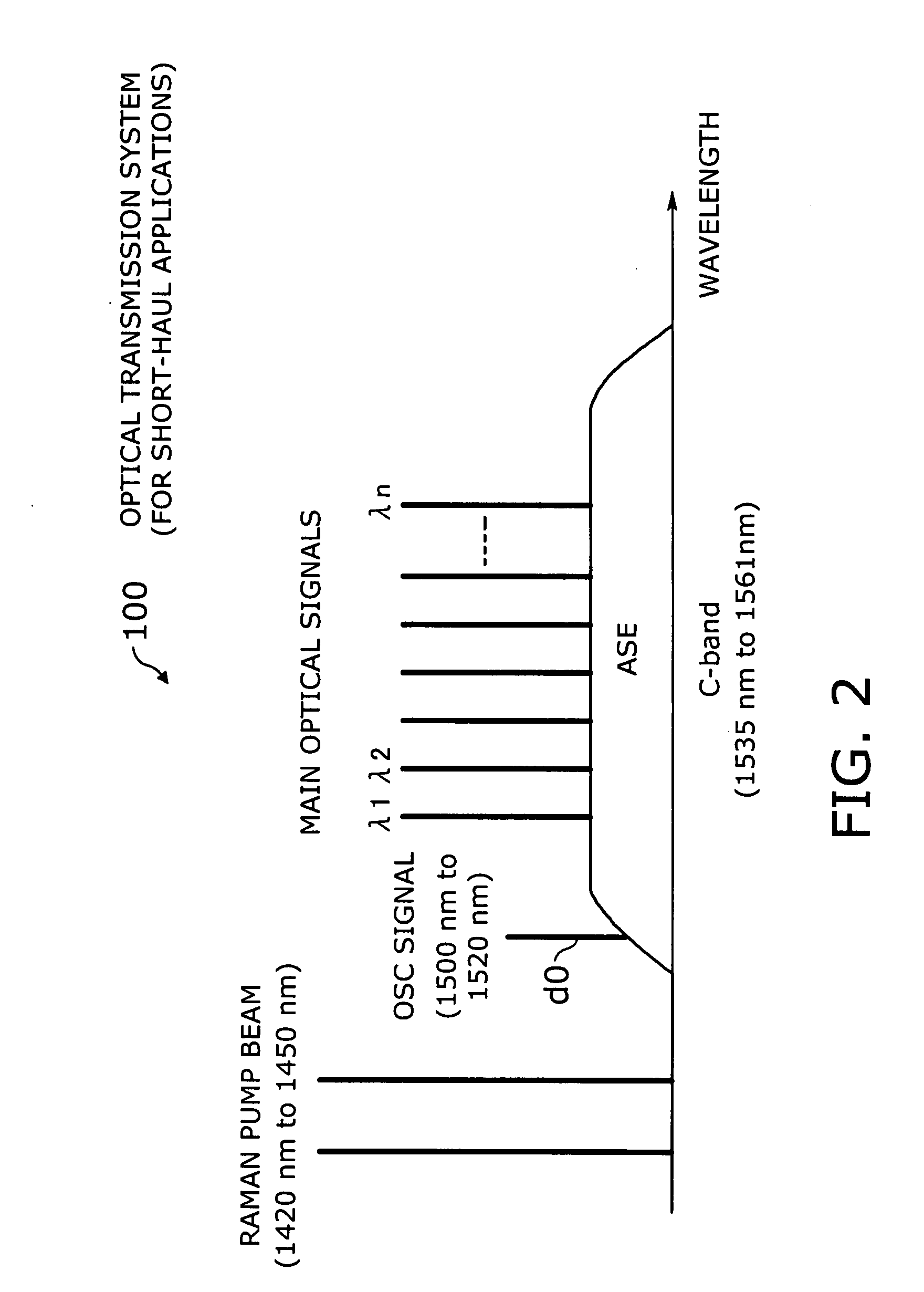Optical transmission system
a transmission system and optical technology, applied in optical transmission, transmission monitoring, electromagnetic transmission, etc., can solve the problems of long haul, osc signal error, osc signal level too large for osc receiver to follow, etc., to prevent osc signal errors and improve the signal control mechanism.
- Summary
- Abstract
- Description
- Claims
- Application Information
AI Technical Summary
Benefits of technology
Problems solved by technology
Method used
Image
Examples
Embodiment Construction
[0040] Preferred embodiments of the present invention will be described below with reference to the accompanying drawings, wherein like reference numerals refer to like elements throughout:
[0041]FIG. 1 is a conceptual view of an optical transmission system 1 according to the present invention. This system 1 is a long-haul repeaterless optical transmission system where an optical transmitter (or upstream station) 10 sends WDM optical signals to a remotely located optical receiver (or downstream station) 20 over a fiber-optic transmission line F1. While only one direction is illustrated in FIG. 1, the two end stations actually have both transmission and reception capabilities, so that the system 1 can transport signals in either direction. In other words, the illustrated elements and functions of the present invention can be integrated in a single device or a single station.
[0042] The optical transmitter 10 has an optical amplifier 11 and an optical amplifier controller 13. The opti...
PUM
 Login to View More
Login to View More Abstract
Description
Claims
Application Information
 Login to View More
Login to View More - R&D
- Intellectual Property
- Life Sciences
- Materials
- Tech Scout
- Unparalleled Data Quality
- Higher Quality Content
- 60% Fewer Hallucinations
Browse by: Latest US Patents, China's latest patents, Technical Efficacy Thesaurus, Application Domain, Technology Topic, Popular Technical Reports.
© 2025 PatSnap. All rights reserved.Legal|Privacy policy|Modern Slavery Act Transparency Statement|Sitemap|About US| Contact US: help@patsnap.com



